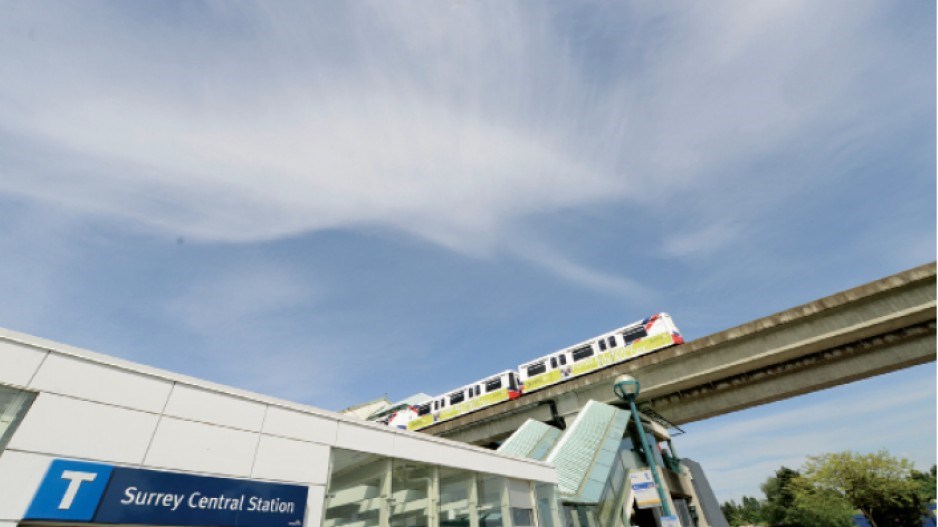The Surrey Board of Trade has thrown its full support behind a proposed $7.5 billion transit plan, saying that increased investment in transit is needed to grow the region’s economy.
“What the Mayors' Council issued today, is nearly perfect for the 23 Metro Vancouver partners,” said Surrey Board of Trade CEO Anita Huberman. “It is a responsible transportation plan that will support our regional economy and will benefit our business communities and residents.”
Huberman said her organization was pleased to see the replacement of the Patullo Bridge, a light rail network for Surrey, and more express B-line bus routes included in the plan.
The Vancouver Board of Trade offered a more muted response to the plan. In a previously released policy statement, VBOT said it hoped to see transportation, and not just transit, addressed in the plan.
“It’s abundantly clear that congestion in the Lower Mainland costs our economy dearly and negatively impacts B.C.’s reputation as Canada’s gateway to the Pacific,” said Iain Black, president and CEO of VBOT.
Black said VBOT does support the plan’s inclusion of a subway line between Commercial Drive and UBC.
“That extension will be a huge benefit for both residents and local businesses, including many of our member organizations,” Black said. “By increasing transit options in North America’s busiest bus corridor, we are making it easier for businesses in the area to attract not just new customers, but also a new pool of potential employees.”
TransLink’s Mayors' Council voted in favour of the plan June 12. The provincial government had tasked Metro Vancouver mayors with formulating a fully-costed plan for regional transit needs.
The province and the mayors have been wrangling about how to fund transit for several years. The province rejected a proposed vehicle levy in 2012, triggering the mayors to rescind a planned property tax increase. The two sides have been unable to agree on a stable new funding source.
During the 2013 provincial election, Premier Christy Clark promised that a regional referendum would take place on any new tax to fund transit. That referendum must take place by June 30, 2015.
Gordon Price, a transit advocate and program director of Simon Fraser University’s city program, said it was remarkable to see the mayors and TransLink work together on the plan, writing on his blog that, “it was a masterful herding of the cats; they all sang along with an harmonious meow.”
“I was surprised to see the degree of consensus and ambition in the plan,” Price told Business in Vancouver.
As to how to fund the plan, the mayors have said they expect provincial and federal government contributions to capital projects. They have also suggested either reallocating the share of the provincial carbon tax that Metro Vancouver residents pay, or increasing the carbon tax.
Implementing a road pricing system is also a possibility, say the mayors, but that would take between five and eight years to put in place.
Todd Stone, B.C.’s Transportation Minister, immediately nixed the idea of reallocating the tax, saying that money destined for provincial coffers was always off-limits.
That reaction is disappointing, Price said.
“It’s certainly continuing a tradition, isn’t it? The province continues to say to the region, you have to do the heavy lifting, the options are open for you — but they’re not and they say that right at the end.”
Sharp criticism of the plan came immediately from Jordan Bateman, B.C. director of the Canadian Taxpayers Federation, who said the plan packed too many expensive projects into too short a timeframe.
“We don’t support the plan. We’re thrilled that Minister Stone has ruled out giving [local government] a share of the carbon tax,” he said at a press conference June 12.
Price countered that the cost of the plan is reasonable, especially compared to what the province has already spent on the Port Mann bridge and plans to spend on a new bridge to replace the Massey tunnel.
“The real question here is, if not this, then what?” he said. “What is the default if the referendum fails? We don’t just maintain the status quo: things get worse. Transit has to be cut, and significantly.”
Business in Vancouver recently published a four-part series on transit and the economy.
@jenstden




